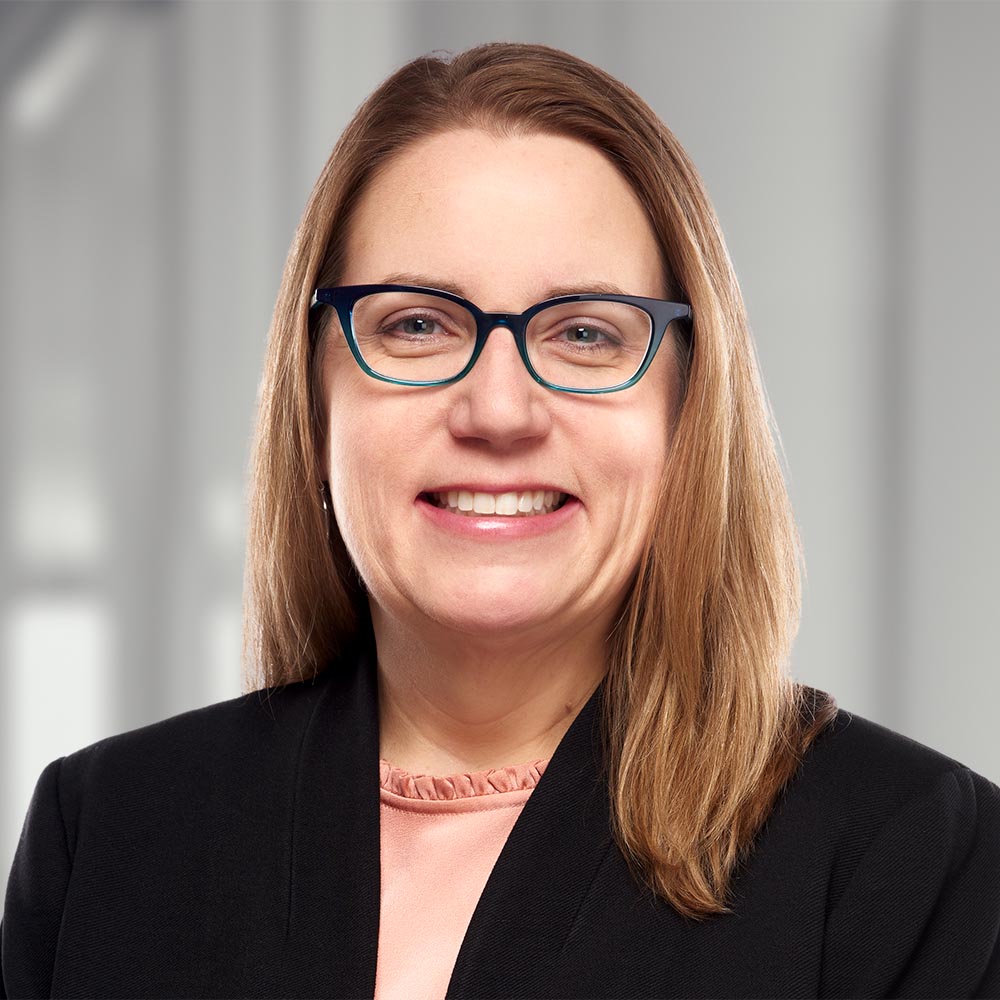Current observations of COVID-19’s impact on private fund sponsors and limited partners
The outbreak of the global coronavirus (COVID-19) pandemic and the resulting economic crisis continue to pose unprecedented challenges to the private equity industry. Although the full impact of the pandemic disruption remains uncertain, as initially predicted, the disruption has affected both private fund sponsors and investors alike. Based on our experience representing sponsors and investors and our exposure to the private funds market, below are some observations of where things currently stand.
Regulatory observations
Through various releases, speeches and enforcement actions, the U.S. Securities and Exchange Commission (the SEC) has conveyed a clear message that it remains an active overseer. At the beginning of the pandemic, the SEC provided relief from certain filing and compliance obligations for those advisers challenged by the current situation and made it clear that reliance on relief orders does not represent increased risk of examinations1. At the same time, the SEC reminded investment advisers who intend to rely on the extended deadlines to continue to evaluate their obligations, including their fiduciary duties, under federal securities laws.
On April 14, the SEC issued FAQs addressing the SEC’s responses to COVID-19-related issues faced by funds and their investment advisers2. The FAQs most relevant for private fund advisers relate to (i) required updates to Form ADV and (ii) failure to comply with Rule 206(4)-2 under the Advisers Act of 1940 (i.e., the Custody Rule) due to circumstances related to COVID-19, such as inadvertent receipt of client securities, failure to distribute the fund’s audited financial statements with 120 days after the fund’s fiscal year-end, failure to comply with the surprise examination requirement and the temporary inability to place physical certificates with a qualified custodian.
In addition, the SEC has remained in full operation and has moved to conducting examinations off-site through correspondence. Consistent with its focus on disclosure and conflicts of interests, on April 22, the SEC settled an enforcement action against a private fund sponsor for failure to disclose that fees for certain services of its in-house operating partners were charged to portfolio companies, resulting in an undisclosed conflict of interest regarding allocation of expenses. The SEC alleged that the adviser disclosed the services provided by its in-house operating partners for seeking investments but failed to disclose that it would charge fees to the portfolio companies for those services3.
Similarly, consistent with its focus on misallocation of expenses, on April 30, the SEC settled charges against an investment adviser and its principal for misappropriation of fund assets. The SEC order found that the adviser improperly charged personal travel expenses to the private fund it managed and breached its fiduciary duty by borrowing money from the fund to settle a personal trade4.
On April 17, the SEC also settled an order with a registered investment adviser for material omissions from marketing materials. The SEC order found that the marketing materials represented that the adviser had direct management over an investment included in its track record, when it was actually an investment in a private fund advised by a third party5.
On May 26, the SEC agreed to settle charges with a registered investment adviser alleging that the adviser failed to implement and enforce policies and procedures reasonably designed to prevent the misuse of material nonpublic information. The order found that the adviser’s compliance policies failed to account for special circumstances presented by having an employee of the adviser serve on the portfolio company’s board while that employee continued to participate in trading decisions regarding the portfolio company6.
The SEC remains active overseeing investment advisers and while providing relief for those advisers affected by COVID-19, remains focused on its examination priorities. Even under current circumstances, investment advisers should review their existing practices, policies and procedures to ensure consistency with the SEC’s examination priorities and areas of focus and with their fiduciary duty obligations. Investors should be aware and take into account these specific areas of SEC focus when conducting their diligence with respect to a potential investment.
Fundraising observations
- Fundraising investment strategies. Although private equity fundraising during the first four months of 2020 showed very strong, there continues to be an expectation in the market of a slowdown. However, private fund sponsors and investors alike have increased their focus on distressed investments (hoping to capitalize on assets that may only be in temporary distress), as well as funds focused on healthcare, biotech, renewables and certain real estate assets. There is also an increased appetite for bespoke fund of one arrangement and co-investments alongside funds investing in distressed assets. Most investors are focused on well-established funds and certain first-time fund sponsors are experiencing more difficulties proceeding with fundraising or facing longer fundraising periods. Some investors, especially investors with regulatory and tax concerns, are seeking to be admitted to funds on the condition that a minimum amount of capital must be raised before they commit to make an investment (or are forgoing participation in a first closing in favor of participation in subsequent closings). We have also seen certain fund sponsors seeking to reopen existing funds or raise annex funds to admit additional investors and allow investors to increase their commitments in order to take advantage of current investment opportunities or provide additional liquidity to existing portfolio companies.
- Market trends. With the increased liquidity concerns imposed by economic disruption, fund sponsors are more active in seeking to modify certain terms during the fundraising process, such as increased flexibility with follow on investments, recycling mechanics, investment period and term duration and certain investment limitations, as well as, an attempt by private sponsors to preserve more flexible investment strategies.
Limited partners have also been focused on issues more typical during a downturn of the economy. For example:- Limited partners are focused on investment limitations during the fundraising period. As generally, these limitations are based on targeted commitments or a percentage of targeted commitments (known as benchmark commitments), limited partners have sought to lower the percentage of such targeted commitments in case the fund sponsor is not successful with the fundraising.
- Although, limited partner defaults on capital call obligations may occur, we have not seen limited partner default yet. However, concern has grown in limited partners that other limited partners may default, which could require the non-defaulting group to increase their capital contributions to complete a portfolio investment. Therefore, when making new investments, limited partners have been focused on the “overcall” limits for calling capital in an event another limited partner defaults, trying to determine their potential exposure for such defaults.
- Limited partners have also been focused on conflicts of interests and transactions with affiliates notice and approval rights as such rights provide an increased protection of their investments during times of economic crises.
- Another area of focus has been the write offs and write downs resulting from significant markdowns in portfolio company value for purposes of calculating the management fee base after the expiration of the investment period and that such write offs and write downs reduce management fees.
- Fundraising process. As initially expected, private fund sponsors and limited partners are experiencing a longer fundraising process. As government agencies are also impacted by COVID-19, marketing, especially in non-US and non-Canadian jurisdictions is taking more time than usual. Investors, fund sponsors and placement agents are affected by the travel ban and the inability to conduct face to face meetings. This has proven especially difficult with first time meetings and attracting new investors First-time fund sponsors, especially those that have not yet held in person meetings with investors have in particular slowed down their fundraising activities and some have postponed them until next year.
Fund operational observations
- Communications with investors. Full transparency, communication and alignment of interests with limited partners are highly recommended during this crisis. It is advisable that fund sponsors be very diligent about communicating with investors and provide as much lead time as possible with respect to capital calls, partnership agreement terms amendments or execution of documents. Fund sponsors should also be diligent in providing complete information about liquidity, valuations and business continuity of the funds and their portfolio companies. Maintaining a strong relationship between sponsors and limited partners is increasingly important during this time of crisis.
- Subsequent investor valuation issues. Private fund sponsors that have acquired material assets prior to the end of their fundraising are generally experiencing issues with substantial decreases in the value of such assets. Subsequent closing investors are traditionally expected to share in the income and expenses, gains and losses of the fund as if they had invested at the initial closing. Some subsequent closing investors may not be willing to subscribe to a fund where its investments to date have declined in value. As a result, we are seeing discussions about providing additional incentives for subsequent closing investors as earlier closing investors are motivated to ensure that subsequent closing investors contribute their share of the losses in connection with the lower valuations of the assets.
- Credit facilities. As their portfolio companies’ valuations drop, liquidity is reduced, and covenant defaults are a real concern. Most portfolio company borrowers were able to maintain adequate financial performance through March 31st such that covenant compliance has not yet been an issue, but third and fourth quarter numbers may tell a different story. In addition, asset valuations and audits are challenged by the very practical obstacles that exist because of social distancing. To date, lenders have been willing to work with their borrowers when accommodations have been necessary, but these accommodations come at a cost to the borrower; we have seen lenders require fees, pricing increases and tightening of restrictions in loan documents. Fund sponsors and their portfolio companies should undertake a full review of their credit facilities to determine what accommodations, if any, may become necessary in the next few quarters. Now is the time to take care of any post-closing matters before they become leverage for a default. If the review uncovers any potential issues, open discussions are encouraged because the relationship between the borrower and its lenders will be even more important than before.
- Liquidity solutions. With credit lines fully drawn and sponsors making additional investments in their portfolio companies to maintain liquidity, fund sponsors are likely to seek more creative liquidity solutions. For example, private debt funds are well-positioned to offer supplementary capital. We have also seen sponsors seeking to raise structured equity funds, such as funds providing preferred equity investments in a fund’s portfolio. Other fund sponsors are seeking to obtain more flexible recycling mechanics and follow-on investment limitations. As noted above, other sponsors are seeking to reopen existing funds to admit additional investors and allow investors to increase their commitments. The market dislocation could also lead to unique opportunities relating to GP-led secondary transactions7.
As the full impact of COVID-19 and the resulting economic dislocation remains uncertain, we will continue to monitor the situation and continue to keep you informed of any future developments.
_________________________
1 For more information please see our alert “SEC Extends Form ADV and Form PF Filing Deadlines for Investment Advisers Affected by COVID-19”. Further, on March 25, 2020, the SEC issued a new order (Advisers Act Release No. 5469) that superseded the original order and extended the filing obligations to filings with original deadlines falling on or before June 30, 2020. It also eliminated the requirement that an investment adviser include a brief description of why it could not satisfy the filing or delivery requirement, as applicable, by the original deadline and the estimated date it expects to satisfy such filing or delivery requirement.
2 Available here.
3 See In the Matter of Monomoy Capital Management, L.P. available here.
4 See In the Matter of Monsoon Capital LLC and Gautam Prakash available here.
5 See In the Matter of Old Ironsides Energy, LLC available here.
6 See In the matter of Ares Management LLC, available here.
7 For more information please see our article “Private Equity GP-led Secondary Fund Transactions”.
Read all our coronavirus-related updates on our COVID-19 guidance for organizations resource page.
To discuss these issues, please contact the author(s).
This publication is a general discussion of certain legal and related developments and should not be relied upon as legal advice. If you require legal advice, we would be pleased to discuss the issues in this publication with you, in the context of your particular circumstances.
For permission to republish this or any other publication, contact Janelle Weed.
© 2026 by Torys LLP.
All rights reserved.



